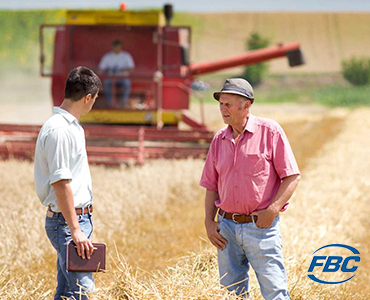Last updated: Oct. 18, 2017
Farm Businesses in Canada
Whether it’s a family farm that has been in operation for generations or it’s a start-up, there’s an attraction to being your own boss and working outdoors. It also doesn’t hurt that farming in Canada has become more lucrative over the years.
The government of Canada offers a number of incentives that help Canadians maximize their earnings and minimize their taxes.
And there’s a lot at stake. Gone are the days of people thinking they cannot make a living as a farmer in Canada. In 2015, total farm sales reached $60.4 billion with the average farm making $358,503.
This increase in wealth comes as Canadian farmers shift toward mechanization and specialized agricultural sectors. The average value of machinery and equipment hit $278,405 per farm in 2016.
According to Statistics Canada, the average total income for farm operators has been steadily rising. The average national income for farm operators, including off-farm income, has risen from $73,455 in 2010 to $90,529 in 2012 and $95,331 in 2014.
While farm incomes are increasing, so too are the number of farm operators who do off-farm work. To supplement their total annual income, 30.2% of farm operators worked an average of 30 hours a week, or more, off the farm.
This combination of both farm income and off-farm income (whether self-employed or as an employee) provides those working in the agricultural industry with a wide variety of tax saving options.
Tax Incentives & Savings for Farming and Agricultural Businesses
Most Canadian farms operate as small businesses. This means farmers can take advantage of the same tax savings as non-agricultural small business owners.
Because farming is so specialized, there are a large number of additional tax incentives farmers can take advantage of that other small business owners cannot.
As full-time farmers, you can generally deduct any reasonable expense from farming income. This includes interest on loans and losses, the cost of feed and fertilizer, and veterinary fees. Other eligible tax saving expenses include machinery rental, insurance, motor vehicle expenses, and electricity.
Come harvest time, should you need to hire additional people to help in the field, you can claim those costs as an expense. If you hire someone who is a qualified Red Seal trade apprentice, you might be able to claim the apprenticeship job creation tax credit; 10% of the apprentice’s salary or wages.
Full-time farmers can also deduct their losses, which is great since not every year is going to provide a bumper crop. You can transfer a farm loss amount back to any of the preceding 3 years, or, forward to any of the next 20 years.
These are only a few of the small business tax savings, incentives, and deductions farm business owners can use to help lower the amount they pay to the Canada Revenue Agency.
Connect with your Local Farm Tax Consultant to learn more
FBC, Helping Canadian Farmers Pay Less Tax
The tax consultants at FBC have worked exclusively with farm operators and small business owners since 1952. Over those 65 years, FBC has helped tens of thousands of farmers take advantage of both small business taxes and more specialized farm business taxes.
Because we only work with small business owners, tradespersons and farm operators, our tax experts are experienced in handling all relevant tax matters and are up-to-date on Canada’s often confusing, ever-changing tax laws.
At FBC, we also understand that no two businesses are alike and no two businesses need the exact same kind of assistance with their tax services. As a result, we’re the only firm in Canada to offer integrated tax services on a year-round Membership basis.
For more information on FBC and the services we offer, call us today at 1-800-265-1002 or submit an online form and an FBC tax specialist will contact you at your earliest convenience.
